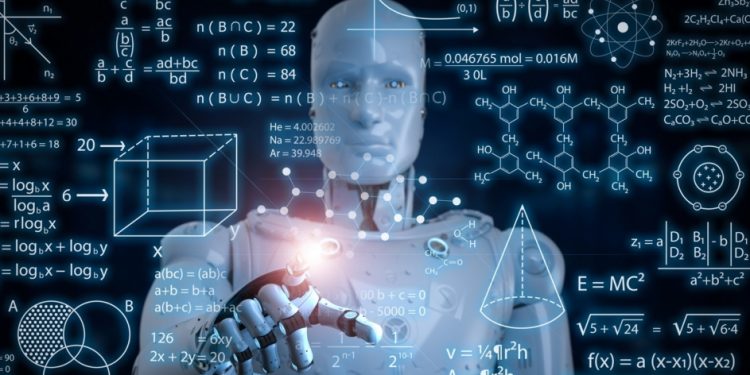By Bhavana Gowda
Of late, Artificial Intelligence (AI) is considered an emerging technology that has boosted efficiency over many industry verticals. It is safe to say that AI has transformed lives mostly positively. On the other hand, COVID-19 has transformed billions of lives across the globe negatively and has left everyone wishing things return to normal as soon as possible. While it is estimated that it is only a matter of time that humanity comes out of this existential crisis, many establishments are going to have to adapt to the ‘new normal’ that covid-19 is going to leave behind.
During our relentless fight with COVID-19, doctors, scientists, healthcare workers, and many other frontline workers are being helped by one of the most important tools currently available, Artificial Intelligence. AI is one of the prime tools that is driving analysis and research, primarily into healthcare during this global crisis. It is being used for analyzing medical data, preparing treatment plans, helping out with contact tracing, analyzing virus transmission rates, developing drugs, and detecting hotspots, among many other uses. Experts believe that the hitherto untapped benefits of AI will go a long way to help in the technological landscape.
Below are three emerging trends showing how AI will play a major role in a post-COVOD-19 world in shaping the business landscape.
A Need for Planning under Uncertainty: Before the global pandemic, industries relied mainly on historical data to plan for the future. Advanced companies did depend on AI and Machine Learning (ML) techniques to accurately predict the future, but most industries were still using basic analytics to make business decisions. This is now purported to change as companies are finding out that historical data is not necessarily the only thing that will help in predicting the future, during these uncertain times.
Growth of AI and Data Science in Old-Guard Industries: With the global pandemic, AI and data science are expected to be implemented in even the most old-guard industries like mining, energy, manufacturing, and food production out of pure necessity. However, other industries may find that they have the opportunity to implement AI for bettering their future as well. Up until now, society has heavily depended on technology to continue everyday functionality and as such, many organizations have digitized their internal and external processes. It is estimated that companies that implement the digital way are more likely to survive the turmoil that is seen in the current global pandemic, where people are looking for non-contact ways to interact with others. Digitization has become the need of the day and may very well decide which organization survives and which one dies out.
Democratization of AI and Machine Learning: The growing popularity, infrastructure, and accessibility of AI and ML are going to impact a wide variety of industries and companies of all sizes. During this period, the democratization of AI and ML is particularly beneficial for smaller companies that are trying to innovate. With democratization comes standardization, which is the need of the day to make AI and ML more cost-effective to all industries. We have to try to make as many companies survive and thrive, and democratization of AI and ML is one of the basic steps that the industry must partake in. The inherent aim of AI is to optimize efficiency by the collection of Big Data. As the trail of economic destruction caused by the pandemic drives to digitize, there is going to be an abundance of data and challenges for AI to resolve. While humanity may never return to the normal pre-COVID era in principle, it is up to the effective implementation of AI that can make us see the future from a new perspective.
As we have seen the importance of AI and ML, it is natural to consider the prospect of a career in AI. Dubbed as the hottest job of the 21st century, careers in data science, ML, and AI are in great demand. A large number of companies, within and beyond the technology sector are looking for talent with specialized skills to develop and implement data science and ML solutions to the new normal post-COVID-19 requirements. The need of the hour is to not just reinvent the existing technology to adapt to the new normal, but also to drive innovation in the future. As the amount of data being gathered by industries rises by the minute, the requirement for skilled resources that can analyze this data is also increasing. Opportunities are plenty, ranging from the IT sector to entertainment, manufacturing to healthcare, data scientists are required to compile, analyze and build models that will help to predict the future. Relevant post-graduate degrees in applied mathematics, data science, or e-science are being held in high regard by most employers.
In conclusion, the future of AI and ML is indeed bright and is expected to be the driving force behind revitalizing the industry post the pandemic of COVID-19. It is expected to create jobs, reinvent technology to adapt to the new normal, and be the foundation point for inspiring innovation.
(Author is Assistant Professor, School of Computer Science and IT, JAIN (Deemed-to-be University))













